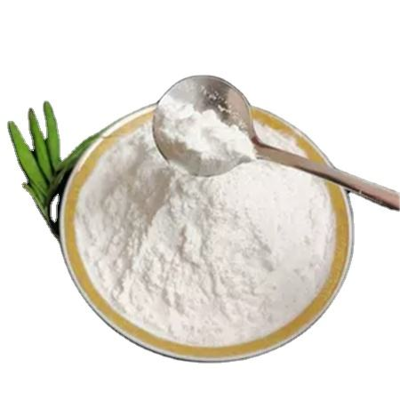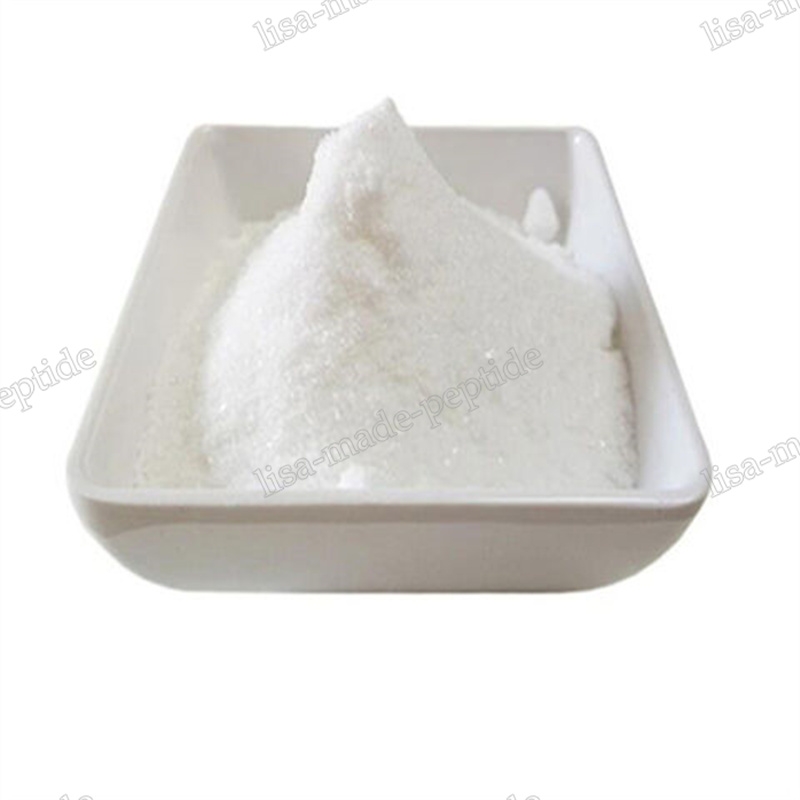-
Categories
-
Pharmaceutical Intermediates
-
Active Pharmaceutical Ingredients
-
Food Additives
- Industrial Coatings
- Agrochemicals
- Dyes and Pigments
- Surfactant
- Flavors and Fragrances
- Chemical Reagents
- Catalyst and Auxiliary
- Natural Products
- Inorganic Chemistry
-
Organic Chemistry
-
Biochemical Engineering
- Analytical Chemistry
-
Cosmetic Ingredient
- Water Treatment Chemical
-
Pharmaceutical Intermediates
Promotion
ECHEMI Mall
Wholesale
Weekly Price
Exhibition
News
-
Trade Service
A message recently released by the National Development and Reform Commission’s WeChat official account is eye-catching
.
The article titled "Interpretation of Coal Price Regulation and Supervision Policy Series Six" stated that in order to regulate coal prices, the Price Department of the National Development and Reform Commission organized a special meeting to exchange and discuss key issues such as how to define thermal coal
.
The meeting held that coal sold to power generation and heating companies or with a calorific value of less than 6,000 kcal can generally be regarded as thermal coal
.
Once the news was released, it attracted the attention of the market
.
Defining thermal coal by calorific value
Defining thermal coal by calorific value Defining thermal coal by calorific value This special meeting defines thermal coal from the perspective of flow direction and calorific value
.
Industry insiders generally believe that although the content of the meeting has not yet formed a clear document, it sends a policy signal-defining the scope of thermal coal
.
This definition distinguishes thermal coal from chemical coal, coking coal and other types of coal
.
"Actually, there is no essential difference between thermal coal and chemical coal
.
" Professor Miao Maoqian, deputy director of the Institute of Coal Chemical Industry of Taiyuan University of Technology, told the China Chemical Industry News reporter that with the maturity of coal gasification and other technologies, domestic chemical plants are more sensitive to raw coal.
The adaptability is greatly improved
.
"Traditional fixed-bed gasifiers have high requirements for coal types, and only need to burn anthracite, coke, and semi-coke
.
Nowadays, there are many types of coal used in chemical industry, and most coals can be used, so it is becoming more and more difficult to distinguish chemical industry.
Coal and thermal coal
.
We usually do not look at the calorific value, but distinguish by use: chemical coal, or raw coal, produces syngas; thermal coal, also called fuel coal, produces electricity or steam
.
” Miao Maoqian said
.
Jin Hui, director of coal supply of the coal chemical business department of Jinergy Holding Equipment Manufacturing Group, also said that the difference between thermal coal and chemical coal is mainly in the use and characteristics of coal, and there is often an intersection between the two
.
"For example, the anthracite coal produced in Jincheng, Shanxi, is called thermal coal when it is supplied to power plants and heating companies, and it is called chemical coal when it is supplied to chemical companies
.
" Jin Hui said
.
Since the difference between thermal coal and chemical coal is mainly in use, why is thermal coal defined by calorific value in addition to flow direction this time?
"The main starting point is to regulate the price of thermal coal and stabilize the cost of power companies
.
Since February this year, the state has carried out multiple rounds of regulation and regulation on coal prices
.
Each policy indicates that the target of regulation is domestic thermal coal
.
In the process of policy implementation, the industry has There is a certain controversy about what thermal coal is
.
The meeting defines thermal coal, which can be targeted
.
Distinguishing it by calorific value is more intuitive and easy to operate
.
" The person in charge of a coal chemical company in Jiangsu said
.
6000 kcal is not a "hard lever"
6000 kcal is not a "hard lever" 6000 kcal is not a "hard lever" "The special meeting pointed out that coal with a calorific value lower than 6,000 kcal is mainly used for power generation and heat supply, and it is the basic coal base that must be stabilized
.
Does this mean that chemical production can only preferentially use calorific value of 6,000 kcal and above? coal?" This is a recent question of many chemical companies
.
In fact, the calorific value is used to distinguish other coal types such as thermal coal and chemical coal, and the "threshold" is set at 6,000 kcal.
The industry's first impression of this is "not low"
.
"There are some coals with low calorific value in China, with a calorific value of only more than 3,000 kcal
.
If it is not classified by type, but only measured by calorific value, 6,000 kcal is already the high-quality coal in thermal coal
.
" Miao Maoqian told reporters that at present Look, there are not many raw coals above 6,000 kcal in China, because the calorific value of pure carbon is 8,123 kcal, while the calorific value of converted coal is 7,000 kcal
.
He also said that China's coal chemical industry is to customize the gasification route according to the nature of the coal, the so-called "customized coal volume" or "coal distribution gasification"
.
For example, "Saiding Furnace" can use lignite of more than 3,000 kcal, especially lean coal and bituminous coal; "Jinhua Furnace" is better to use Shenfu coal of more than 5,000 kcal, with some "three highs" Anthracite can also be used; the calorific value of coal for "Space Furnace" can be greater than 4000 kcal
.
Jin Hui said: "In the actual chemical production, the calorific value of most of the coal at the end is lower than 6,000 kcal
.
For example, the anthracite produced in Jincheng, Shanxi has a higher calorific value than bituminous coal and lignite, which is divided into 5,000 kcal and 5,500 kcal.
There are three grades of calorie, 5800 kcal, and more than 5500 kcal can be used as chemical coal
.
”
Miao Yanwei, director of the procurement center of Henan Xinlianxin Chemical Industry Group Co.
, Ltd.
, told reporters that chemical coal also emphasizes ash content, ash melting point, viscosity-temperature characteristics and other indicators, and calorific value is only one of many indicators
.
At present, domestic coal for chemical raw materials mainly comes from two regions, Yulin, Shaanxi and Ordos, Inner Mongolia.
Due to geographical factors and the age of coal formation, only a few coals have a calorific value of more than 6,000 kcal
.
At present, the calorific value of heart-to-heart raw coal is 5600~5800 kcal
.
Zhang Zhihai, deputy director of the enterprise management department of Guizhou Qianxi Chemical Co.
, Ltd.
, told reporters that in the Guizhou region, the calorific value of high-calorific raw coal is generally 5300-5500 kcal
.
During the peak coal demand season, all local counties implement a "closed customs" policy to ensure electricity
.
It is relatively difficult for chemical enterprises to purchase coal, and the price is also high
.
If only coal with a calorific value higher than 6,000 kcal is used as chemical coal, the amount available for purchase will be less
.
"Although the high calorific value of raw coal is conducive to the stable, long-term and optimal operation of chemical plants, it will also bring about an increase in coal prices and increase the production and operation costs of enterprises
.
" Zhang Zhihai said
.
The reporter learned that because of this, the special meeting did not set 6,000 kcal as a "hard lever"
.
The meeting mentioned that coal with a calorific value of less than 6,000 kcal sold by coal production and operation enterprises can generally be regarded as thermal coal if there is no clear contract, invoice or other evidence to prove that it is ultimately used for non-power purposes such as coking and chemical industry
.
"This in turn means that if there is evidence such as contracts and invoices, then coal with a calorific value lower than 6,000 kcal can be used in coking and chemical engineering
.
" The person in charge of a coal chemical company in Jiangsu said, "Contracts and invoices are required.
Prevent some non-standard coal companies from selling thermal coal at high prices in the name of chemical and coking, earning multiple profits
.
In addition, there have been cases where some middlemen hoarded and bought low and sold high
.
”
The coal market may continue to differentiate
The coal market may continue to differentiate The coal market may continue to differentiate Some institutions believe that the signals from the special meeting may lead to price fluctuations in the chemical coal market
.
Tianfeng Futures Research Report stated that after the National Development and Reform Commission meeting clearly defined thermal coal, the thermal coal and chemical coal markets may be differentiated
.
On the one hand, the coal inventory of power plants is constantly increasing, and on the other hand, there is insufficient supply of coal in the market
.
Huajin Securities analyst Hu Bo believes that this is the first time the policy side has clarified the scope of thermal coal
.
This round of price control tolerance has been relaxed, and the new restrictions do not affect coking coal and chemical coal
.
"This time it is clear that chemical coal and high-calorific value coal are not within the price limit, which is narrower than previous market expectations
.
" An analyst at Guotai Junan's coal team said
.
Institutions generally believe that there is currently an upper limit on the price of thermal coal, and there are no restrictions on chemical coal and coking coal
.
"The long-term contracts signed by coal companies and power and heating companies are basically long-term contracts, which must be covered by 100%
.
This year, the country has added 300 million tons of long-term coal supply, and long-term contracts account for most of the coal share
.
At present, the coal supply in the market is It is difficult for coal chemical companies to get the goods, and even if they get the goods, the price will be high
.
Since the price of chemical coal is not within the scope of national regulation, as long as the demand is strong, the price will continue to rise
.
” Jin Hui said
.
"In the first quarter of this year, our chemical coal purchase price reached 2,300-2,400 yuan per ton, more than three times that of last year
.
However, due to acceptable demand, our products can be transferred to the downstream after the price increase
.
We have to use a part of the profit in exchange for High- priced raw coal
.
" said a person in charge of a chemical company who did not want to be named
.
However, the recent continuous market stabilization policy has given companies hope
.
"Relevant departments have approved a batch of coal production capacity not long ago, and also reduced the import tariff on coal to zero
.
The purpose of these measures is to increase the supply of coal
.
Only when the supply increases can the control policy really play a role
.
" The above-mentioned chemical companies are responsible for People say so
.







